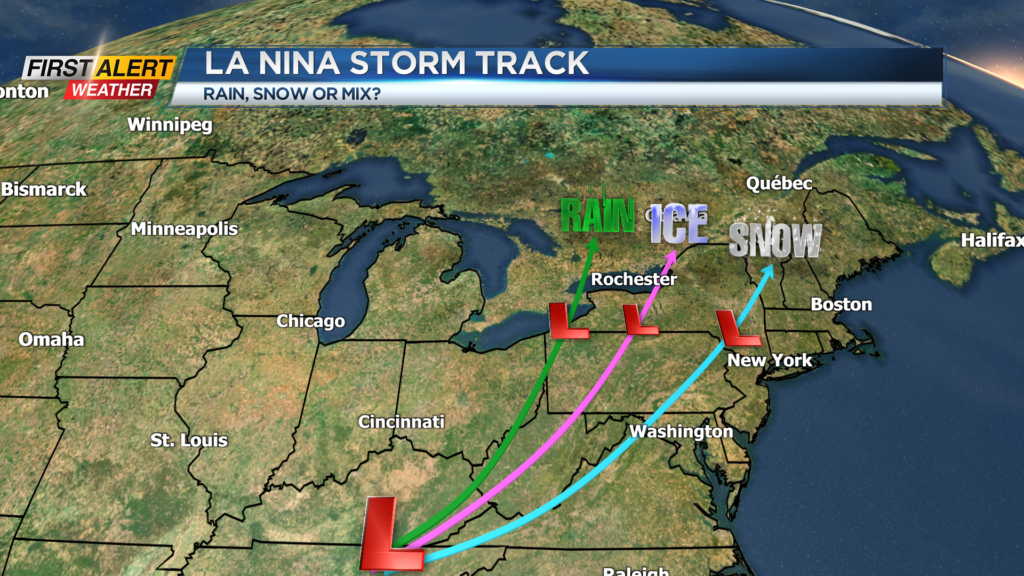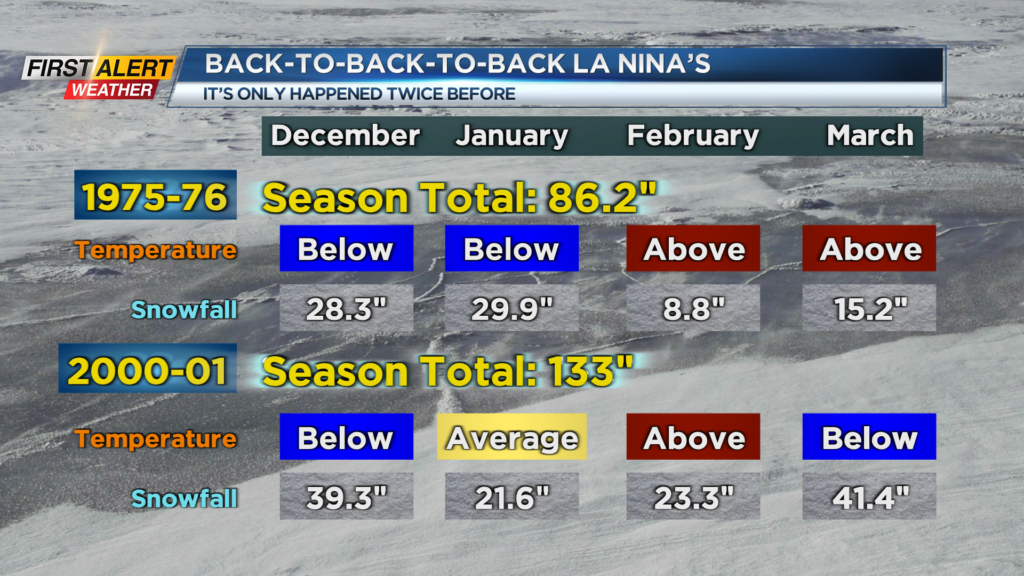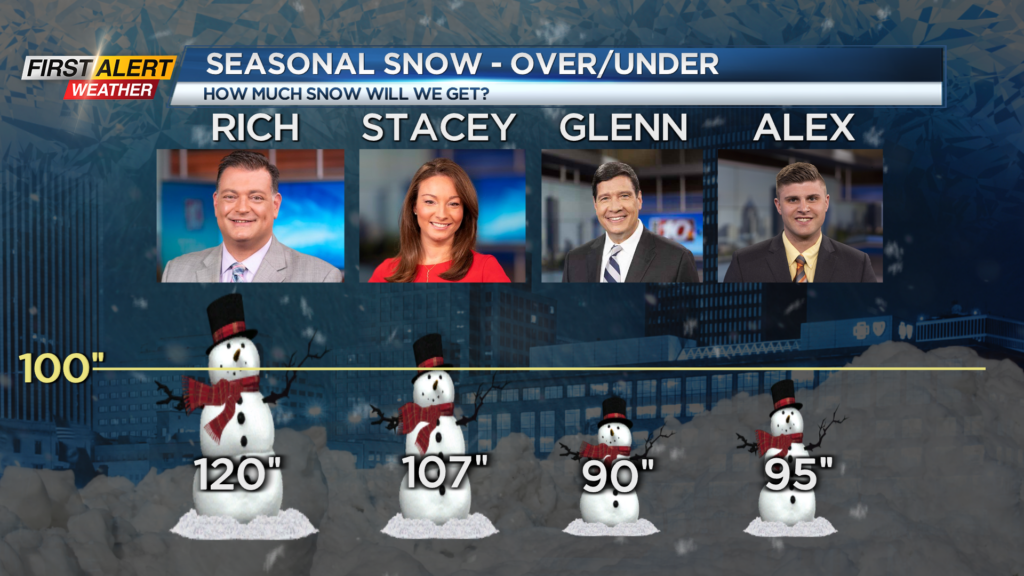Winter Outlook: What La Nina may mean for our winter
[anvplayer video=”5149196″ station=”998131″]



ROCHESTER, N.Y. – One of the most common things our First Alert Weather team is asked, as soon as anybody even starts thinking about chillier air is: “what will our winter be like?” It can sometimes be a challenge to forecast a few days out, so forecasting a few months out certainly has its challenges. But one of the first things we look at is whether we’re in a La Nina, El Nino, or neither – a neutral phase. This year, we’re in another La Nina. In fact, for only the third time in recent history, we’re in our third consecutive La Nina.
A La Nina pattern is when the water in the equatorial Pacific is cooler than average. Even a few degrees can make a big difference in the way the pattern of the upper level winds. In a typical La Nina winter, colder than average air tends to be bottled up in the Northwest and western Canada, warmer and drier than average air in the south, and warmer and wetter conditions across the Great Lakes and Northeast. We tend to have a very active storm track across our area, but that doesn’t necessarily mean more snow. If the storm track is slightly west of us, we’re on the warm side of the storm, and we tend to see more rain than snow. If the track is overhead, we tend to see a sloppy mix of everything. If you want big snow, you want a storm track that is just to our east. This allows cold enough air to supper all snow to invade western New York.
The third year of the 3 year-in-a-row La Nina that happened in the 1970s produced less than average snow, with a seasonal total of 86″. However, in the third year of the back-to-back-to back La Nina in the early 2000s, we had well above average seasonal snow, with 133″.
While La Ninas can sometimes play a role in our winter pattern, that isn’t always the case. And as it usually happens, bouts of lake effect and shorter-lived bouts of cold air (which are impossible to forecast more than a week or two out) will play a much bigger role in how our winter plays out.